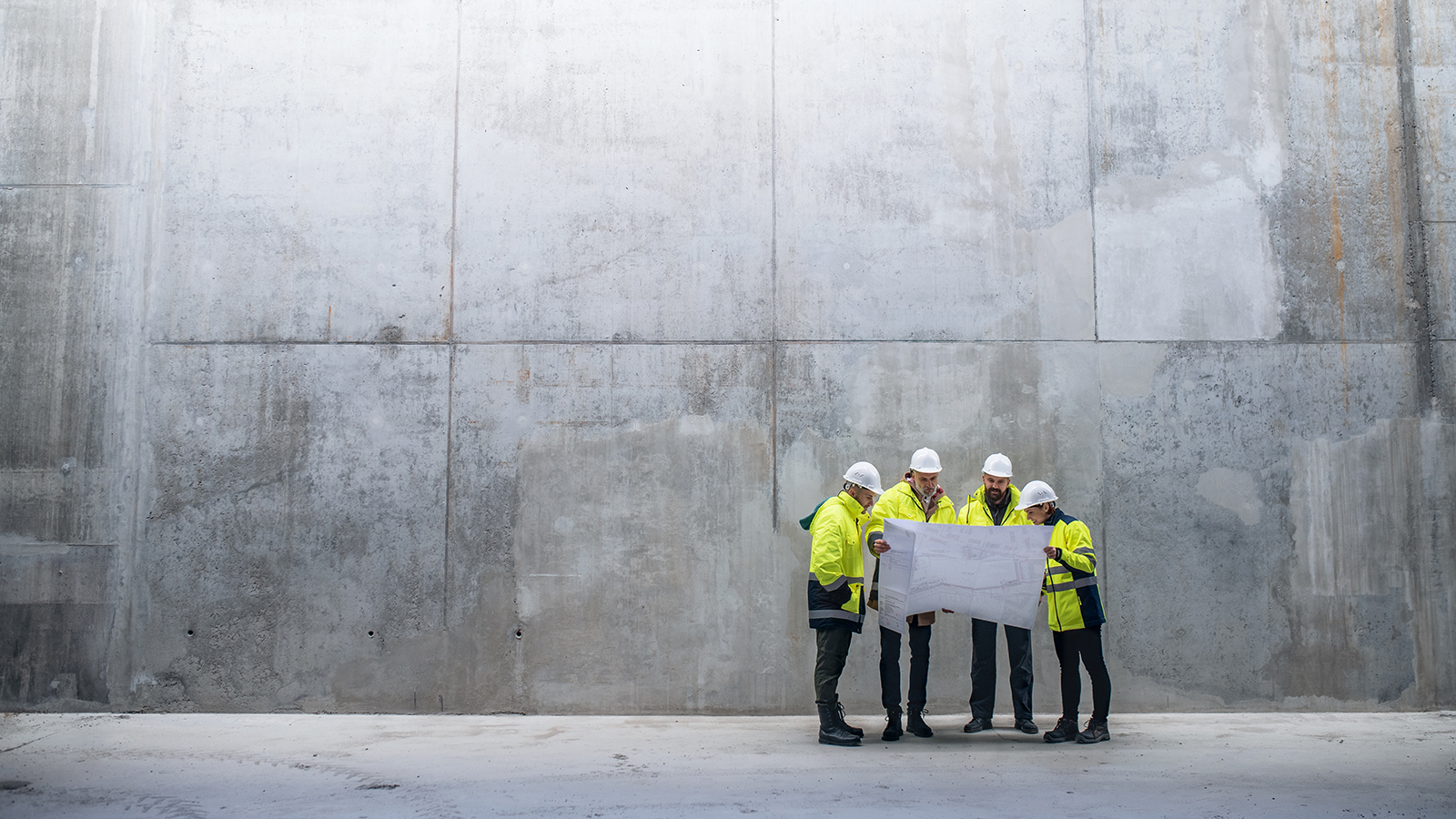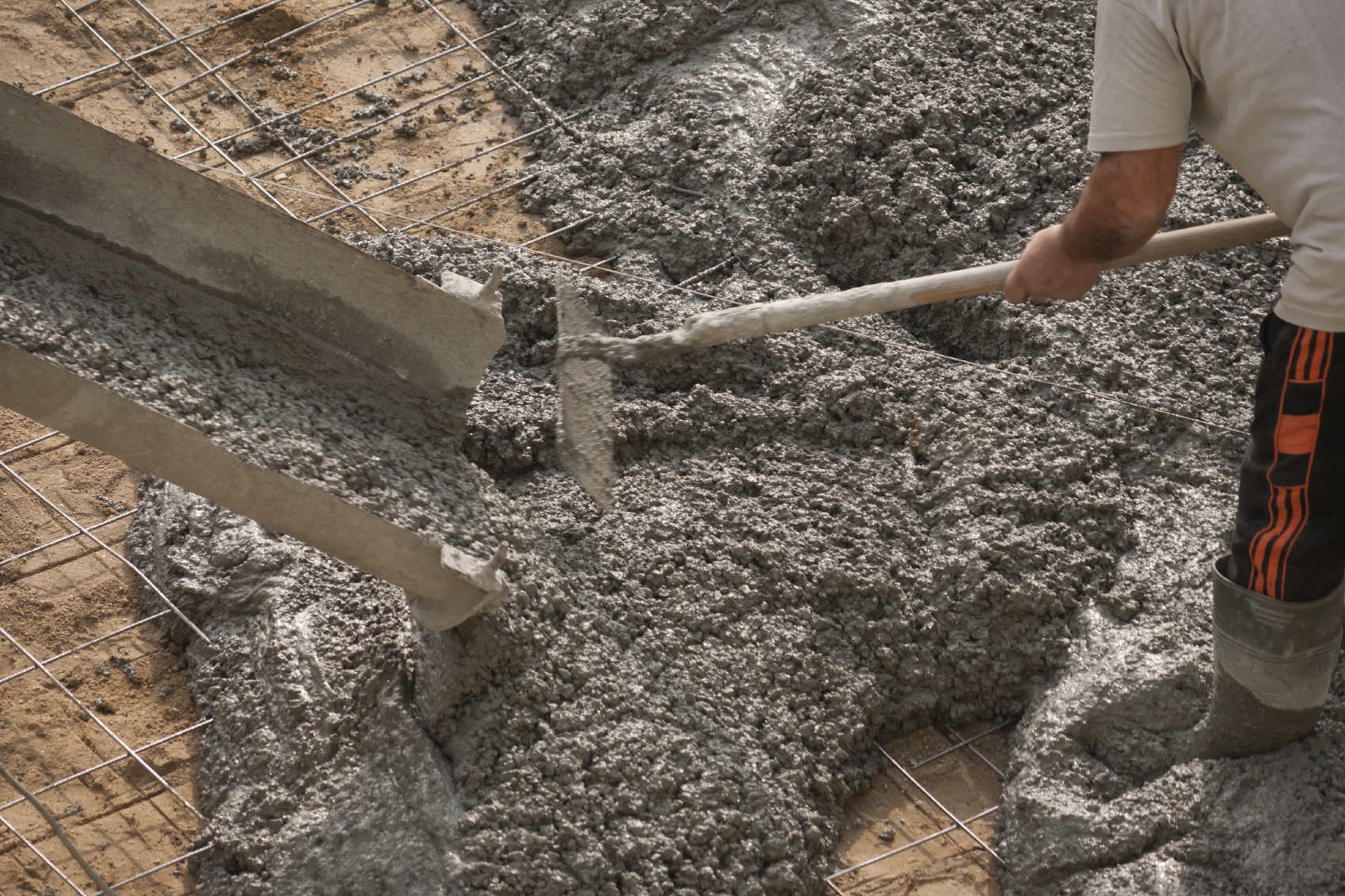WCGE commercial concrete: Ways to Balance Aesthetics, Strength, and Cost in One Project
The Necessary Role of Concrete Foundation in Structural Integrity and Durability
When it comes to building a residential or commercial property, the structure is much more important than you may believe. Concrete structures offer unmatched strength and durability, guaranteeing your framework can endure various ecological difficulties. Without a strong base, you run the risk of potential issues like shifting or cracking, which can compromise safety and value. Understanding the subtleties of concrete structures could be the trick to maintaining your financial investment for several years to find. So, what should you take into consideration next?
Understanding the Importance of Concrete Foundations
Concrete structures are vital to the total security of any type of structure, as they offer the vital assistance required to withstand different loads and environmental problems. When you think of building a home or a commercial room, the structure is the very first thing you should consider. It serves as a barrier versus wetness, securing your property from water damage. A well-placed concrete foundation also stops settling and moving, which can cause cracks in wall surfaces and floors. You'll intend to ensure that the foundation is effectively made and strengthened, as this affects the longevity of your building. In addition, a strong structure can enhance energy efficiency by lowering air leakages. Keep in mind, overlooking the significance of a concrete structure can cause pricey repair services down the line. Spending in a high quality structure upfront is necessary for the stability and durability of your framework.
Benefits of Concrete Foundations for Structural Stability
While lots of factors contribute to a structure's architectural honesty, concrete structures use unequaled longevity and strength. You'll value that concrete can withstand severe climate problems, standing up to both wetness and temperature level variations. This durability implies your structure is much less most likely to experience splitting or shifting with time, which can jeopardize its safety.Additionally, concrete's fundamental weight provides a strong base, protecting against movement during natural occasions like earthquakes or floods. When you select a concrete structure, you're additionally selecting reduced upkeep; unlike timber, it will not rot or draw in parasites, conserving you money and time in repairs.Moreover, concrete's fire resistance uses included security, ensuring your structure can sustain high temperature levels without substantial damages. In general, buying a concrete structure implies you're prioritizing the lasting security and stability of your building, making it a wise choice for any type of construction project.
Common Kinds Of Concrete Foundations
When it comes to developing foundations, understanding the usual kinds of concrete foundations can help you make educated options for your job. One of the most prevalent kinds consist of slab-on-grade, crawl area, and full cellar foundations.A slab-on-grade foundation is an easy, cost-efficient option, where a thick concrete piece is poured directly on the ground. This type works well in warm climates, as it reduces warmth loss.Crawl space foundations raise the home slightly above ground, enabling ventilation and access to pipes and electrical systems. This layout can help prevent dampness issues.Full cellar foundations provide extra living or storage area while providing exceptional architectural support. They call for more excavation and are normally utilized in cooler climates to stop frost heave.
Factors to Think About When Designing a Concrete Foundation

Finest Practices for Setting Up Concrete Foundations
When you're installing a concrete structure, correct website preparation is vital to assure security (West Coast General Engineering industrial concrete). You'll also require to recognize reinforcement techniques to enhance toughness and durability. Do not ignore the healing procedure, as it plays a basic role in achieving a solid foundation.
Website Preparation Relevance
It might appear simple, correct site prep work is vital for assuring a strong and durable concrete foundation. Begin by clearing the location of any debris, plants, or natural product that can jeopardize the structure's stability. Next, analyze the soil type and compaction; you may need to dig deep into or include products to develop a secure base. Level the ground to ensure even weight circulation and prevent working out concerns later on. Setting up proper drainage systems is additionally important to stop water build-up, which can damage the structure over time. Mark out the structure's dimensions accurately to assist the putting procedure. By following these steps, you'll establish the phase for a successful concrete foundation that stands the test of time.
Support Methods Explained
When the website is correctly prepared, the following action in ensuring a durable concrete structure includes implementing effective support techniques. You need to begin by utilizing steel rebar, which gives tensile toughness and helps protect against breaking. Lay the rebar in a grid pattern, making certain it rises using spacers to maintain appropriate coverage. In addition, take into consideration using cord mesh for added assistance, particularly in areas based on hefty lots. Do not forget to link the rebar crossways securely with cord. For larger structures, fiber reinforcement can improve toughness, reducing the threat of shrinkage fractures. Always follow regional building regulations and guidelines to make sure compliance. By applying these support methods, you'll considerably enhance your foundation's strength and durability, laying a solid groundwork for your framework.
Healing Process Fundamentals
To guarantee your concrete structure treatments correctly, it is essential to keep ample dampness and temperature conditions right away after pouring. Begin by covering the surface area with a wet burlap or plastic learn this here now sheeting to maintain wetness. This keeps the concrete moisturized, stopping splits and making certain stamina. You must additionally keep an eye on the temperature level; suitable curing conditions are in between 50 ° F and 90 ° F. If it's also hot, mist the surface frequently to stop rapid evaporation. For cool weather, consider using protecting blankets to keep heat. Objective for a treating period of a minimum of 7 days, as this is vital for ideal strength growth. By complying with these best methods, you'll boost your structure's durability and longevity, making certain architectural honesty for several years to find.
Maintenance of Concrete Structures for Long Life
To keep your concrete structure strong and lasting, regular assessments are necessary. You ought to likewise assure effective drainage solutions are in place to avoid water damages. If you detect any cracks, addressing them promptly will save you from bigger issues down the line.

Regular Inspections and Assessments
While routine evaluations and analyses might feel like a chore, they're important for maintaining the integrity of your concrete structure. By routinely inspecting for fractures, changes, or signs of wear, you can capture possible issues prior to they intensify right into pricey repairs. Try to find any kind of water pooling around the foundation or uncommon settling, as these can indicate underlying issues. It's also smart to monitor any changes in your home's structure, like doors that stick or home windows that don't open efficiently. Maintaining a document of your inspections assists track modifications with time, enabling proactive maintenance. Inevitably, these evaluations ensure your foundation continues to be secure, supporting the long life and safety of your whole structure. Do not ignore this important aspect of homeownership!
Effective Water Drainage Solutions
Normal evaluations can expose issues like drain issues that may compromise your concrete structure's security. To avoid water accumulation, assure your gutters and downspouts direct water away from the foundation. Installing French drains can efficiently reroute surface and groundwater, decreasing stress on your foundation wall surfaces. Furthermore, grading the dirt around your home assists ensure that water streams away, rather than merging near your foundation.Consider utilizing sump pumps in areas susceptible to flooding, as they actively eliminate excess water. Consistently look for blockages in water drainage systems and clear them without delay. You'll safeguard your structure's honesty and long life by taking these proactive measures. Keep in mind, efficient water drainage options are vital for maintaining a strong, long lasting concrete structure.
Trigger Split Repair Works
When you discover cracks in your concrete foundation, addressing them without delay is important for preserving its durability. Little cracks can quickly evolve right into bigger problems, jeopardizing the architectural stability of your home. Consistently inspect your foundation for signs of damages, such as straight or upright fractures. If you detect any, don't wait-- repair them instantly. You can utilize epoxy shots or concrete patching substances, which work for securing fractures. Always adhere to the maker's directions and consider consulting an expert for substantial damage. Keep in mind, timely repairs not just enhance your foundation's longevity however also conserve you cash over time by avoiding much more considerable fixings down the line. Remain aggressive, and your foundation will certainly remain strong and secure.
Addressing Common Issues With Concrete Foundations
Concrete structures can deal with various issues in time, making it vital to recognize and resolve them without delay. One of the most common problems is cracking, which can take place as a result of temperature fluctuations or settling dirt. If you see cracks, it's necessary to examine their dimension and deepness; little cracks can often be sealed, while larger ones navigate to this website might require professional evaluation.Water concrete foundation repair breach is another major problem. Excess wetness can lead to mold growth and architectural deterioration. Guarantee appropriate drainage around your foundation to reduce this risk. Furthermore, try to find indicators of changing or bowing walls, as this can suggest underlying issues with your foundation's stability.Regular inspections are basic to catch these issues early. If you spot any type of concerning indications, don't be reluctant to consult a structure expert. By staying positive, you can maintain the integrity and durability of your concrete structure, ensuring your home continues to be secure and safe and secure.
Regularly Asked Inquiries
Exactly How Does Dirt Kind Impact Concrete Foundation Efficiency?
Dirt type significantly influences concrete foundation performance. If you've got extensive clay, as an example, it can trigger shifting and cracking. Sandy soil could lead to settling. Recognizing your soil helps ensure a secure foundation.
Can Concrete Foundations Be Repaired if Harmed?
Yes, you can fix broken concrete structures. Relying on the degree of the damages, techniques like epoxy shot or piece jacking can recover stability. It's ideal to speak with a specialist for reliable solutions.
What Is the Regular Life Expectancy of a Concrete Foundation?
A concrete structure normally lasts 30 to 100 years, depending on factors like dirt conditions, climate, and maintenance. You'll desire to watch on it to guarantee it continues to be in excellent shape throughout its lifespan.
Exist Alternative Materials to Concrete for Foundations?
Yes, there are choices to concrete for structures, like steel, lumber, or also recycled products. Each choice has distinct advantages and downsides, so you must consider your job's particular requirements when choosing the appropriate product.
Just How Does Climate Effect Concrete Structure Durability?
Environment considerably influences concrete foundation resilience (West Coast General Engineering Concrete). Extreme temperature levels, moisture, and freeze-thaw cycles can deteriorate the material, resulting in splits and architectural problems. You must consider local climate conditions when planning your structure to guarantee lasting performance